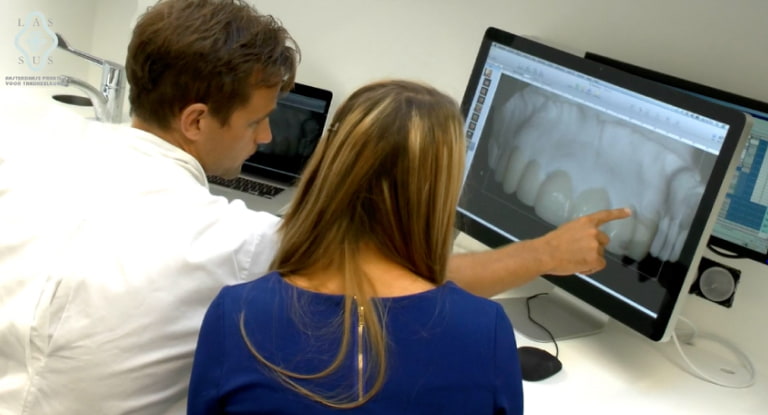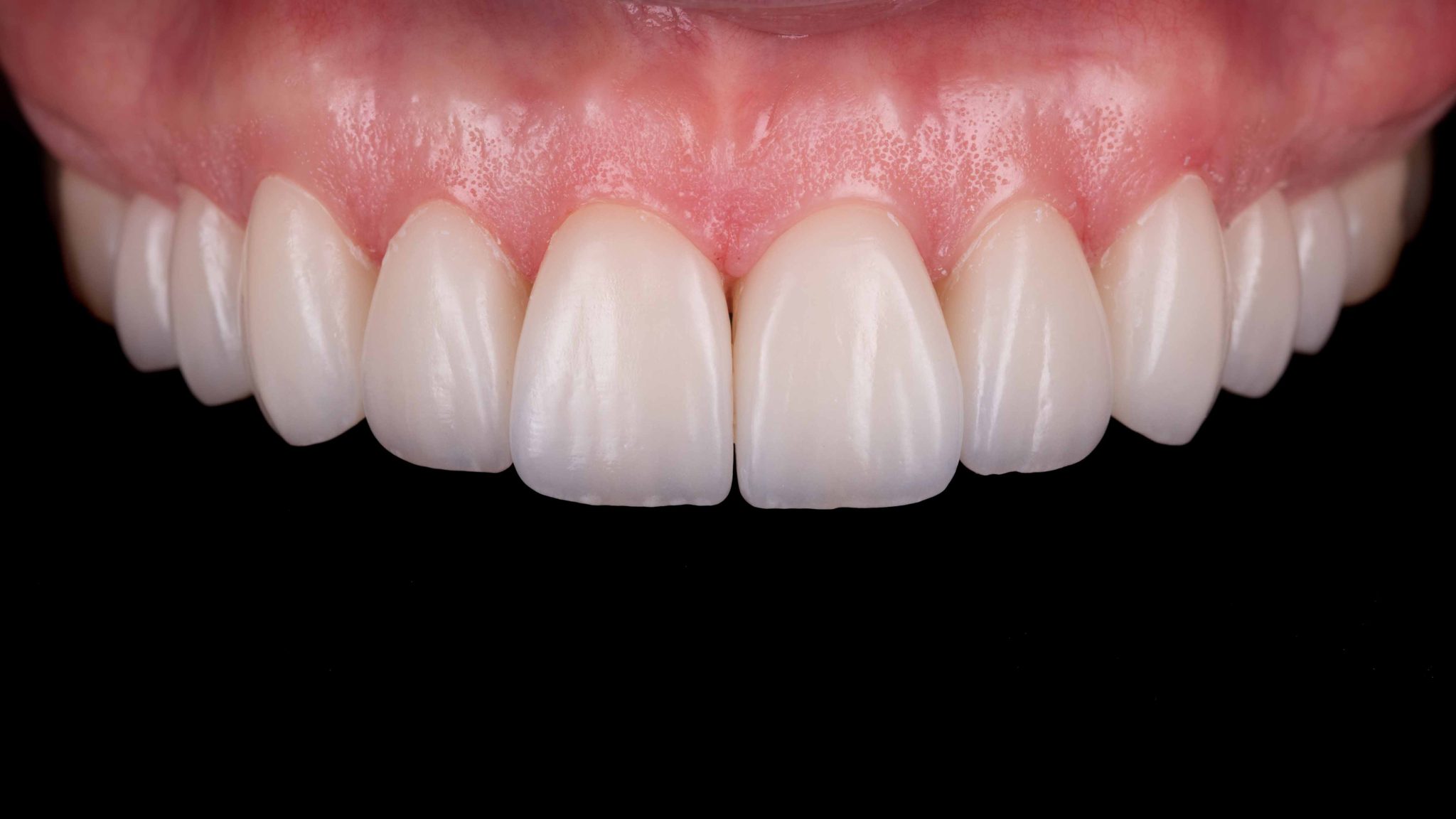Veneers
You’d like to have beautiful white teeth? Or would you like a solution for cracks between your teeth? Or would you like to have multiple broken teeth repaired? With help from veneers, our dentists can refresh and improve your smile.
What are dental veneers?
You’d like to have beautiful white teeth? Or would you like a solution for cracks between your teeth? Or would you like to have multiple broken teeth repaired? With help from veneers, also known as facings, our dentists can refresh and improve your smile.

Why should I have my veneers placed by Lassus Tandartsen?
- We use high-quality and sustainable veneers
- We can place composite facings in a single appointment
- The treatment can be carried out painlessly
- Decide together with a specialist the new colour of the veneers
- Flexible opening times
In our modern dental practices at the Keizersgracht, Lassusstraat and Stadionplein in Amsterdam, you can make an appointment with a specialist to discuss your facing needs.
The differences between composite and porcelain dental veneers
There are two types of facings: composite and porcelain. With both, the principle is the same. Shells are placed over the teeth. There’s a significant difference between the type of materials that are used for facings.
Composite veneers
Advantages:
- Relatively cheap in comparison with porcelain veneers
- Can be placed in a single appointment
Disadvantages:
- Discoloring occurs faster than with porcelain
- A shorter usage lifespan than with porcelain facings
Porcelain veneers
Advantages:
- Veneers made from porcelain don’t discolor
- The specialist can work with multiple shades of color
- They last longer
- Low maintenance
Disadvantages:
- Veneers made from porcelain are significantly more expensive than those from composite
- Multiple treatments necessary
The treatment: Having veneers placed
There’s a difference in the treatment for the placement of porcelain and composite veneers. Both require a short consultation before we can set up the appointment for placing the veneers. Composite veneers can be placed in a single appointment, whereas with porcelain veneers, two appointments are required.
Treatment of porcelain veneers
Porcelain veneers are placed in two appointments. At the first appointment, an impression is taken of your teeth, and together with the Dentist, you can decide on the colour of your veneers. A dental technician uses the impression of your teeth in our laboratory to make porcelain veneers.
At the second appointment, your teeth are prepared with an adhesive layer. The facings are then placed by the dentist. After the treatment, you can immediately enjoy having radiant teeth.
Treatment for composite veneers
Facings made from composite can be placed within a single day. Together with a specialist, you first choose the colour of the composite veneers. Then your teeth will be treated with an adhesive layer so the composite can be placed successfully. The facings are then hardened using a special lamp. The last step involves shaping the facings in the desired form. Following the treatment, you can immediately enjoy your new radiant smile.
Aftercare and maintenance of dental veneers
In the first days after treatment, you’ll need to get used to the veneers even though they’ll feel the same as your natural teeth. This is definitely the case if the form of your teeth has been significantly altered. This can lead to temporary difficulties with speaking until your mouth is used to the new formation of your teeth with the veneers.
Veneers don’t require special maintenance compared to natural teeth. We recommend that, as with natural teeth, brush your teeth at least twice a day. Also, use dental floss, sticks or interdental brushes to keep your teeth clean.
FAQ
How long do veneers last?
We estimate that a veneer can last roughly from five to ten years. This, of course, depends on your lifestyle and drinking habits. If for example you smoke a lot and drink a lot of coffee then there’s a chance that your veneers won’t remain looking good for a long time. It’s also possible that your veneers could be damaged if for example you regularly grind your teeth or bite your nails.
Can I eat everything with veneers?
After the treatment, it’s possible to eat and chew normally. Be careful not to bit hard things such as nuts, raw carrots or nails. Also, we advise you not to tear food apart with your teeth such as French bread.
Is the placing of veneers painful?
The placing of veneers is not painful. If teeth enamel needs to be filed down from your natural teeth, then this doesn’t go as deep as for example the drilling into a tooth. You shouldn’t experience any pain from this at all.
The costs of the placing of dental veneers
The price of veneers depends on the material from which it is made. You can choose between veneers made from porcelain or composite. In addition to this, the number of veneers and how the treatment will be carried out also play a role in the costs of facing treatment.
To give you an idea of the costs, we’ve created some examples below:
| Treatment | Rate |
|---|---|
| Veneers composite | € 150-160 per tooth/molar |
| Veneers porcelain | € 700-900 per tooth/molar |
Testimonial
“I called this practice on a Saturday as I had so much pain. I was able to see them immediately and they helped me with the pain. The rest of the treatment was completed the following week. I’m so happy that I ended up at this practice.”
Happy client
